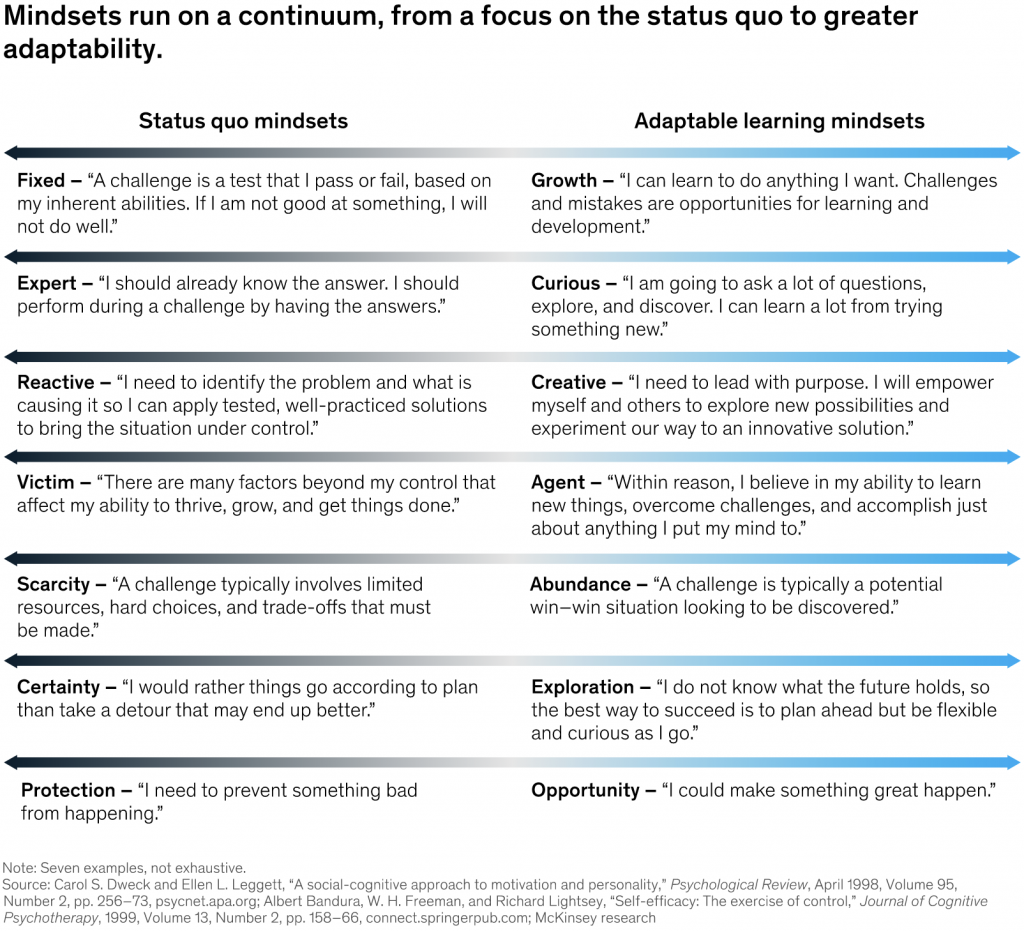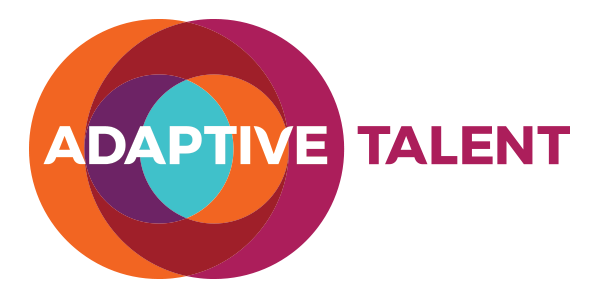Adaptability is obviously of deep interest to me for several years now, and the pandemic has made it the hot topic for 2021 and beyond. I tend to think of adaptability as a function of one’s consciousness or personal operating system. It takes effort to get out of our default or auto pilot mode and be intentional / objective with our thinking, awareness, and conscious choices. For an organization, as you can imagine, adaptability is limited or enhanced by those in power and their collective consciousness. McKinsey has a focus on adaptability and came out with some helpful tips. I’ve listed their top suggestions below and encourage you to read the article on their site.
Why building an adaptability muscle is so important
“The power of resilience has been amply demonstrated during the COVID-19 crisis. Although resilience and adaptability are linked, they are different in important ways. Resilience often entails responding well to an external event, while adaptability moves us from enduring a challenge to thriving beyond it. We don’t just “bounce back” from difficult situations—we “bounce forward” into new realms, learning to be more adaptable as our circumstances evolve and change. Learning agility, 3 emotional flexibility, and openness to experience are all part of a multidimensional understanding of adaptability. 4 They help us maintain deliberate calm under pressure and display curiosity amid change. They allow us to respond in ways that are the opposite of a knee-jerk reaction by making thoughtful choices.
Studies have shown that adaptability is also linked to important psychological skills, ranging from coping to personal growth. In the workplace, 5 higher levels of adaptability are associated with greater levels of learning ability and better performance, confidence, and creative output. 6 Adaptability is also crucial for psychological and physical well-being and is linked to higher levels of social support and overall life satisfaction. 7 Now that we’ve enumerated the benefits of adaptability, let’s go through the five ways leaders can invest in it to prepare for a fast-paced and uncertain future.”
Step 1: Practice well-being as a foundational skill
Step 2: Make purpose your North Star and define your ‘non-negotiables’
Step 3: Experience the world through an adaptability lens

Step 4: Build deeper and more diverse connections
Step 5: Make it safe to learn
Working with an Executive Coach can be helpful to help leaders take stock of their life and begin the process of seeing anew and making changes. It is hard work, takes time, and will be filled with mistakes and successes. Please reach out to us if we can help you and your company with their adaptability.
Photo Credit: Marcel Strauß
—
Adaptive Talent is a talent consultancy designed to help organizations achieve amazing results and ongoing adaptability. Founded in 2008 and based in Vancouver, Canada we offer retained and executive search, assessments, total rewards consulting, training, leadership coaching and development programs, and culture & organizational development consulting.

